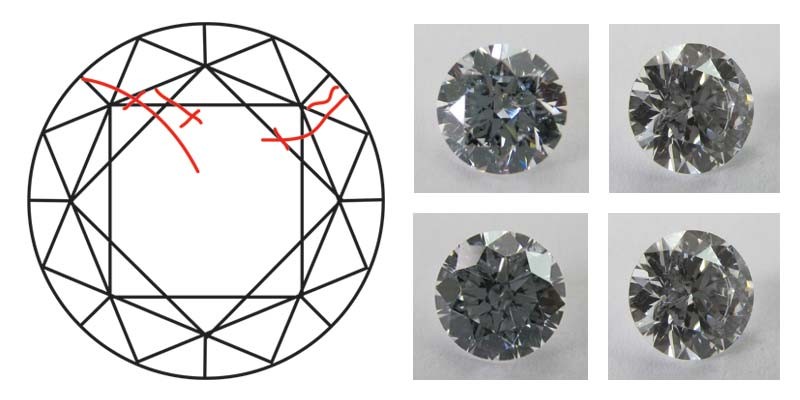
However, there are less scrupulous scenarios at play sometimes. In cases where the jeweller is responsible for providing a corroborating grading report, he or she usually finds an appraiser to confirm the findings of the first lab. At the same time, the consumer may decide to find their own appraiser to re-grade the stone. So far, nothing in this situation is questionable. When the grades are off beyond reason, there have been cases where a dishonest jeweller tries to cast a shadow on the appraiser’s capabilities or experience; to soothe any suspicion, he or she presents enough documents to corroborate the ‘better’ report. I’m sorry to say we have had jewellers approach our lab to engage in this type of activity. Suffice to say, we declined.
I’m no lawyer, but anyone who has been following the EGL story can safely surmise this lab’s defence will surely be that the entire grading system is subjective and there are no absolutes. So we are left with the question of how to deal with the subjective nature of grading diamonds. The fact is, there are no universally accepted standards, and let me explain what I mean by that.
Grading to GIA or AGS standards is universally accepted and implemented by labs around the world; reports from these two laboratories, especially GIA’s, have a massive captured market among jewellery retailers and consumers. It is also true the discounts and margins for diamonds traded on these reports are very tight. Other labs looking to run a profitable business have to provide some sort of value proposition as to why a diamond would simply not be sent to GIA or AGS to be graded. Further, the idea of grading standards is not comparable to those found and used in the scientific and engineering industries, where measurable quantities are overseen by a governing body. This is a whole other topic of discussion that we’ll put aside for now.
Regardless of EGL International’s legal difficulties, the natural question to ask is, where do we go from here? If the courts make it impossible for EGL International to exist as a business, does this address the issue of overstated grading reports by others and the lack of standardization? Unfortunately, I would say no.





